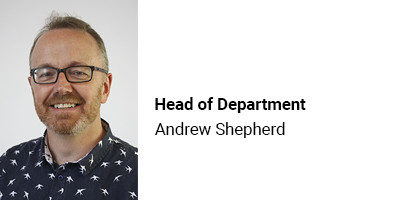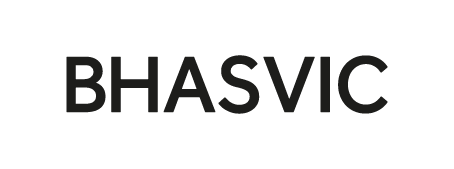Economics A Level
Qualification: GCE A Level in Economics
Exam Board & Specification Code: AQA; 7136; Specification
Course Entry Requirements: 4 English Language GCSE and 4 in Maths GCSE. It is possible to study Business BTEC or Business A level alongside Economics A level but it is not possible to study Business BTEC and Business A level together.
Please make sure that you have understood the overall entry requirements to study at BHASVIC. These are available here and outline the GCSE grades you need to take up one of the Study Programmes at the college.
Length and size of qualification: 2 year single course
Timetable hours: 4.5 hours per week
Assessment method: 3 x 2 hour exams
BHASVIC Department: Business and Economics
What will I study?
Economics is the study of society through the behaviour of people, firms, and governments, with the aim of understanding and improving well-being and wealth in society. A level Economics is divided into two parts: Microeconomics and Macroeconomics. Microeconomics explores the concept of free markets and whether individuals and firms acting in their own self-interest achieve the most effective production and consumption decisions. The course looks at markets such as supermarkets, energy, and banking, critically assessing whether they work effectively for consumers. We also study labour markets, and the causes and effects of inequality. Macroeconomics takes a holistic view and explores economics at a national level through themes such as the causes of unemployment, inflation, and economic growth. We also study the international economy, for example looking at the impact of international trade and evaluating reasons for the different levels of economic development between countries.
Is this course right for me?
Successful A level Economists have an enquiring and considerate mind, empathy for the many different people around them, and a fascination with the interdependent world we live in. You should be enthusiastic about understanding issues such as the effects of leaving the EU on the prosperity of the UK, how to solve gender inequality, and how decisions such as taxing sugary drinks affect the choices consumers make. Be prepared for disagreement, economists have wildly different opinions about social injustices, policy choices, and likely outcomes. You should be prepared to learn some theoretical and technical concepts which can at first seem difficult. These techniques will enable you to critically assess a range of issues such as how best to combat global warming and other such sustainability problems, how to reduce poverty, and how to 'nudge' people to eat more healthily. You should be prepared to study independently as there is much to cover, so you must read and learn between lessons. You should enjoy explaining issues with extended essay writing and enjoy and understand the logic of maths. Although in A level Economics the maths is GCSE level, Maths A level is usually a prerequisite for BSc Economics degrees but not BA degrees. Due to its breadth of relevance, Economics complements any subject, but it does work particularly well with politics, geography, history, maths, sociology, and psychology.
Listen to what our students have to say about Economics
Frequently asked questions
Absolutely. Many of our students do study both. The subjects are very compatible because understanding economic changes helps you understand what businesses need to do to cope, and understanding how businesses work helps you understand how an an economy works.
All and any of them! Always choose subjects that you are genuinely interested in. If you want to study an Economics BSC degree at university then you do need A Level Maths. Economics BA degrees don’t require Maths A Level.
We expect a minimum of 4 hours of independent study per subject per week, as does every other BHASVIC subject.
We only ask for a grade 4 in Maths GCSE because Business and Economics students will be analysing data using basic arithmetic. There’s nothing more complicated than arithmetic in our subjects!
Where next?
Economics students have many opportunities. An A Level in Economics can lead to a range of occupations in the business sector, from HR to Marketing, where students need an understanding of the economy. Many go straight into jobs in the banking and finance sector. Skills that can be obtained from studying Economics include problem solving, innovation, critical understanding, confidence with numbers, and economic awareness. Students can also go on to university to study Economics and many related degrees. Careers that may follow from this include Actuarial Analyst, Chartered Accountant, Data Analyst, Economist, Financial Risk Analyst etc. Jobs where an economics qualification would be useful include Actuary, Civil Service Fast Streamer, Data Scientist, Local Government Officer, and Quantity Surveyor. Useful websites to research careers and wider progression options could include Royal Economic Society, Target Jobs, All About Careers and The Apprenticeship Guide.
Apply View DepartmentLast year, 65 BHASVIC students went onto study Economics-related degrees at 19 different universities
Economics remains year on year one of our top ten subjects for University study. You can study a BSc Economics (with maths) or BA Economics (without maths).
Popular universities included Sussex, Bristol, Warwick, Exeter and Bristol UWE. Students went onto study at LSE (London School of Economics and Cambridge.
Should I study Economics at degree level?
Economics is the study of people’s behaviour & how decisions influence the well-being of society. We explore themes such as inequality, economic growth and sustainable development. Split fairly evenly between lectures, seminars, workshops and private study. Principles, maths and stats will ensure foundations are set for first year modules. Projects & essays are required.
Types of Economics degree
You can choose to study straight economics or a combined subject. It often combines well with
- Business
- Finance
- Philosophy
The combinations are extremely varied.
Entry Requirements
A-levels (or equivalent) usually required
- Maths
- (If you study a BA Economics you will not usually require A level Maths)
Useful to have
- Economics
- Further maths
- Statistics
Top Universities for Economics
Cambridge, Oxford, UCL, LSE, St Andrews
Nottingham, Leeds, Surrey, York – all very high student satisfaction scores
Loughborough, York, Sussex - all with top graduate prospects
Many of our students choose a combined degree - applications from our students have included:
- Philosophy, Politics and Economics
- Economics with Industrial Experience
- Financial Economics
- Economics with Econometrics with Industrial Experience
Example entry requirements (please check):
A-Level/BTEC equivalents:
UEA Economics A,B,B
Cardiff Economics A,A,B-A,B,B
Derby Economics B,B,B-B,B,C
Why not try a foundation degree or higher apprenticeship?
Plymouth Economics (Foundation) UCAS Points: 32-80
Some examples of Economics-related degrees that our BHASVIC students have gone onto study in the past few years are:
- Economics (with placement)
- Economics and Econometrics
- Economics (Including Year Abroad)
- Economics (with a professional placement year)
- Economics and Econometrics with Study Abroad
- Economics and Finance
- Economics and Finance with Industrial Experience
- Economics, Finance and Data Science
- Economics and Finance with Study Abroad
- Economics and International Development
- Economics and International Economics
- Economics and Management
- Economics and Mathematics (Industry)
- Economics with a Year Abroad
- Economics and Politics with Year Abroad
- Economics and Statistics
- Economics with Accounting
- Economics with Foundation
- Economics with Industrial Experience
- Economics with International Study
- Economics, Finance and International Business
- Economics, Finance and Banking
- Philosophy, Politics and Economics (PPE)
- Philosophy, Politics and Economics with a Year in Industry
- Politics and Economics
- Politics, Philosophy and Economics
How BHASVIC helps: We have a wide range of information and resources to support students applying for university including subject area guides, personal statement and UCAS resources, super-curricular activity guides, open day and bursary information. We also cover university research, careers, art foundation and all other destinations in depth in tutorial and students can choose an appropriate pathway for them in the second year from UCAS, Employability & Enterprise, Visual Arts, Oxbridge and Medics. Our Spring Futures Fair brings in a huge number of university visitors with workshops and information stands and departments will bring speakers in wherever possible.
Studying Economics provides an array of subject-specific & transferable skills, highly sought after by employers.
Jobs where an Economics degree would be useful include:
- Business development manager
- Civil Service
- Data scientist
- Diplomatic service officer
- Local government officer
- Management consultant
- Quantity surveyor
Career Prospects
Economics students normally do well in the jobs market. As the industry recovers, we expect the statistics to improve. As so many economic students go into banking and finance, it's not surprising that many work in London.
It's quite common for economics graduates to go into jobs such as accountancy which require you to take more training and gain professional qualifications - so don’t assume you won’t have to take any more exams. The incentive to take them, of course, is better pay, which will be on top of an already healthy average starting salary of over £28,000 for graduates working in the capital.
Local Market Information
Centre for Cities have published a report entitled 'The future of skills in UK cities' using data provided by EMSI. Their key findings are that analytical and interpersonal skills are becoming increasingly important in all UK cities due to the decline in routine manual occupations and a move towards high-skilled occupations.
Examples of apprenticeships and opportunities include:
- Apprentice Financial Services Assistant
- Financial Analyst
- Fast Stream - Economic Service Scheme Civil Service
How BHASVIC helps: We have an excellent Careers Hub and careers advisors who are available for appointments through student services. Local jobs are advertised and they will advise on skills and specialist areas such as degree apprenticeships. Students can choose an appropriate pathway for them in the second year from UCAS, Employability & Enterprise, Visual Arts, Oxbridge and Medics. Our Spring Futures Fair brings in a huge number of careers & apprenticeship visitors with workshops and information stands and departments will bring speakers in around the subject area.
You will gain many transferable skills studying Economics that will be valued in the workplace including:
Thinking logically & critically, ability to simplify complex issues and extract relevant information, data analysis, written & spoken communication, problem-solving, time management
Local Skills
The Local Skills agenda considers job prospects and employment in our local area of Sussex. Many of our students will contribute to the National Skills agenda and go onto find a career in a wide range of sectors. For students in Sussex our local skills are identified as the following sectors:
- Construction
- Creative & Cultural
- Digital (includes IT and Technology)
- Engineering & Manufacturing
- Healthcare (includes Bio Life Sciences and Pharmaceutical)
- Visitor & Hospitality
- Land-based (includes Agriculture and Viticulture)
- Green Skills
Degree choices that match the Local Skills agenda for Digital Industries that BHASVIC students have gone onto study in the past few years include:
|
|
Career choices that match the Local Skills agenda for Digital Industries that BHASVIC students have gone onto study in the past few years include:
- Business development manager
- Banking
- Finance Services
- Accountancy
- Business Analyst
How BHASVIC helps: Skills Week in A1 helps students build skills in the workplace and a focus on developing skills through tutorial in A1 and A2 supports students in writing outstanding Personal Statements and CVs. We know our students have already gained a wide variety of skills at home and with extra-curricular activities and will increasingly take up jobs. Our focus is on supporting them to evidence skills already gained, identify gaps and ensure that they transfer that to CVs and applications. This is in partnership with every curriculum area.
